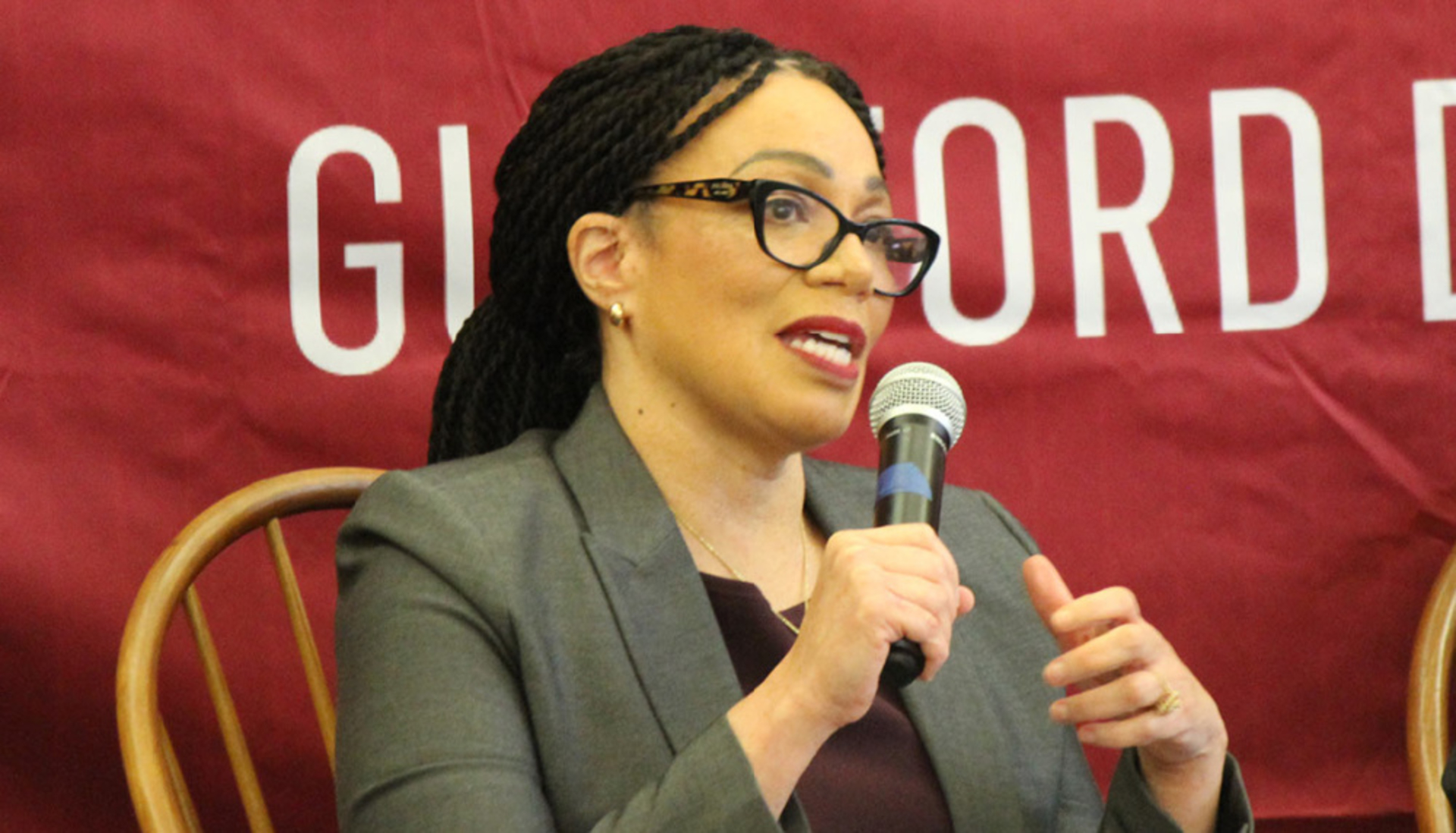
Education leaders used the second day of Guilford Dialogues to rethink schools and education in a post-pandemic world.
“I see educators that can work three days. Some can work four days. Some can work as much as they want. Students can be in school, five days, six days, seven days, depending on the need and their education is greatly personalized.”
The pandemic upended every aspect of our schools. It was not just the overnight pivot from classrooms to laptops. The lockdown tested basic ideas of instruction, attendance, testing, the role of technology and the human connections that bind everything together.
On Friday’s second day of Guilford Dialogues – Guilford College’s two-day conference on equitable educational opportunities for all – the focus from the start was on taking advantage of those changes and reimagining what a 21st century education can and should look like.
Winston McGregor, President of the Guilford Education Alliance, likened the pandemic’s impact on schools to a series of tornadoes that leveled much of Joplin, Mo., in 2011. “People were so focused on rebuilding hospitals and homes that schools could do whatever they wanted,” said Winston, who is a former County School Board member. “There seems to be something similar happening coming out (of the pandemic). We have this opportunity in front of us to reimagine or reinvent what schools will look like.”
Others on the panel see a similar opening. The pandemic pointed anew to glaring inequalities of race, disability and income. Learning loss is getting new attention, schools with poor ventilation systems are being moved ahead of others for renovations and teachers who survived crash courses in virtual teaching are finding lessons that endure.
But the time to act on those issues is now, says Sharon Contreras, CEO of The Innovation Project, a nonprofit collaborative of North Carolina public school district superintendents. “One of the great threats to public education is we have had this horrible experience of the pandemic, but we're not taking the opportunity to rethink education and the way that we can, we should be tinkering with it,” she says.
Sharon, a former Guilford County Schools superintendent, envisions schools that are open seven days a week. “I see educators that can work three days. Some can work four days. Some can work as much as they want,” she says. “Students can be in school, five days, six days, seven days, depending on the need and their education is greatly personalized.”
She says teachers and, when able, parents and community members, can share positions throughout the school year and school systems can work on licensure making it easier for individuals skilled in technology, science and mathematics – subjects where there’s an acute shortage can transition from industry and collaborate with other teachers.
Jusmar Maness, Chief Academic Officer for Guilford County Schools, says her school system is already expanding its learning opportunities with students – before and after school and tutoring during traditional hours. “We have to rethink what a full day of learning looks like because research supports expanding learning opportunities and translates into higher graduation rates.”
Another panelist, Jerell Blakeley of the Indiana State Teachers Association, says states need to address the long-standing issue of pay and student debt to attract the best and brightest teachers into the field. “Folks are not signing up to take on $100,000 in debt for a job that maybe pays you $30,000,” he says. “We need to make (teaching) more attractive and that folks believe this is a career that allows them to raise a family and live in dignity.”
The second day of Guilford Dialogues also included discussions on improving healthcare to students in underserved communities, recruiting and retaining educators of color and supporting first-generation students of color.
Now in its second year, Guilford Dialogues brings people with passion and expertise to the College to help solve some of the most pressing social issues facing many communities across the United States and the world.
President Kyle Farmbry says attendees walked away from this week’s Dialogues with a better focus on some of those issues.
“There were great discussions, not debates, on exploring educational opportunities for everyone,” he says. “That’s what Guilford Dialogues is about. Helping people better understand the issues through meaningful discussions and then taking what they’ve learned back into their own communities.”

